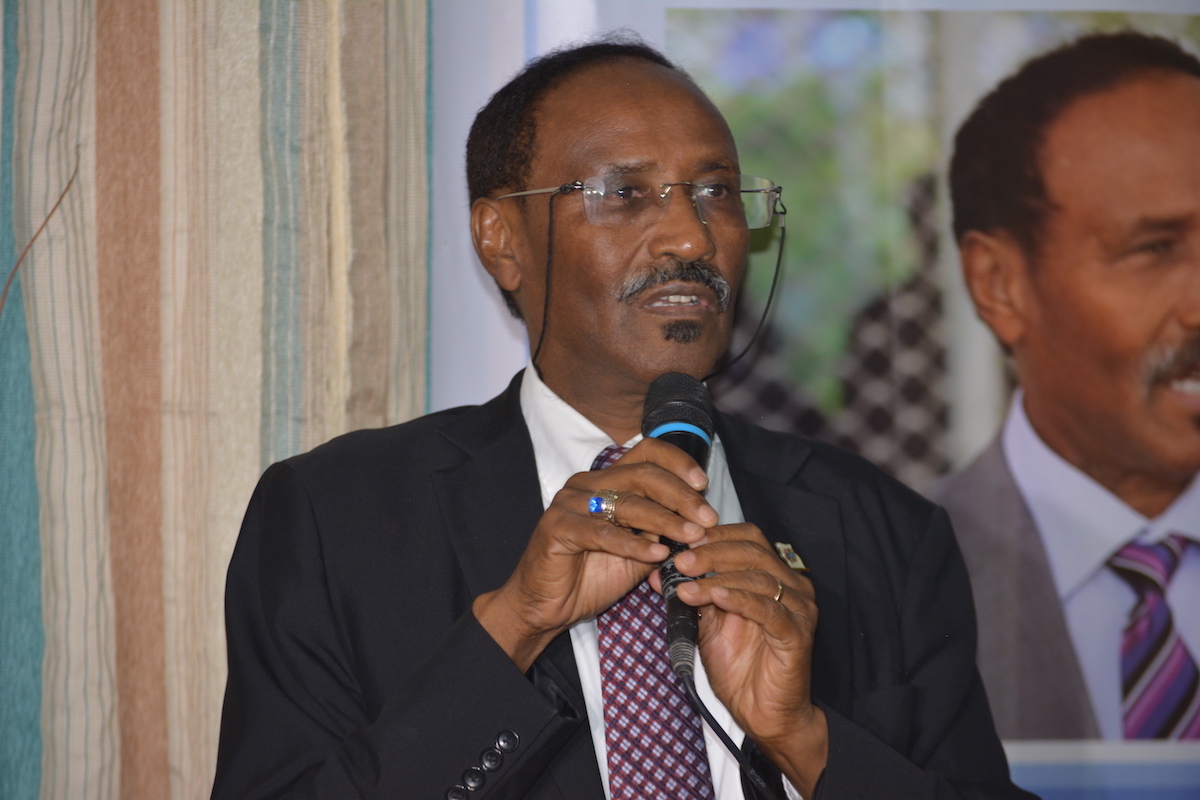Income tax shoots up as Finance Minister ups domestic borrowing


Local and foreign employees earning a monthly income of more than $200 will be subjected to an income tax ranging between six and 12% while hotel owners in Mogadishu will be slapped a five percent sales tax in a domestic market raid by the finance minister to finance the nearly $270 million budget.
Newly appointed Finance Minister Abdirahman Beyle sought an inward approach in financing the country’s budget at a time donor fatigue is taking its toll on the country which is yet to be declared credit worthy in the international financial market. The $267,544,364 budget will see the domestic market cough up 60% while international donors are expected to meet the deficit.
Somalia does not qualify for credit in the international markets over its unpaid debts which stands at $5.3 million or 93% of the country’s Gross Domestic Product. IMF resident representative for Somalia Samba Thiam signaled February of debt relief in unspecified time for Somalia to enable the country access much needed credit for recovery.
Pay as you earn
While presenting the April-June budget in Parliament Sunday, Beyle announced a six percent income tax on those who earn between $201 and $800 and a 10% tax for income earners of between $801 and $1,500. Both local and foreign income earners including humanitarian workers earning a monthly income of $1,501 and above will have to give the taxman $12% of their income. This shall also include all allowances, the minister said. Prior to the new rule, income between $201 and $800 attracted a $5.1% payee.
Employers will be expected to remit the tax within the last ten days of the month, the minister said while hotel owners will submit theirs within the first ten days of the month.
Cigarette and khat consumers were also dealt a blow by Beyle. Importers of the leafy stimulant khat which is mainly from Kenya will have to pay $3 per kilogram import duty while importers of the various brands of tobacco will also pay an increased import duty of between $6 and $24.
Petroleum products
Road users might have to fasten their belts following an increased import duty for petroleum products. A ton of kerosene and petrol will attract $56.25 import duty while the same amount for diesel has been imposed a $50 tax. Importers will also have to part with an import duty of $12.50 for barrel of kerosene and petrol and $11.25 for a barrel of diesel. Increased oil prices will see the cost passed to road users.
Service industry
In his efforts at lessening foreign dependency, the Finance minister has also imposed increased sales tax on the telcos, electricity, water and the entertainment industries. Telecommunication companies will have to pay 15% sales tax while electricity companies part with a similar tax of 5%. Water companies on the other hand will pay a 5% sales tax while TV and internet companies will be charged a 5% sale tax.
The new tax regime will take effect on April first. Other import tariffs remain unchanged, the Finance Minister said.
The minister instructed all employers and companies to submit their tax information to the revenue department every month.